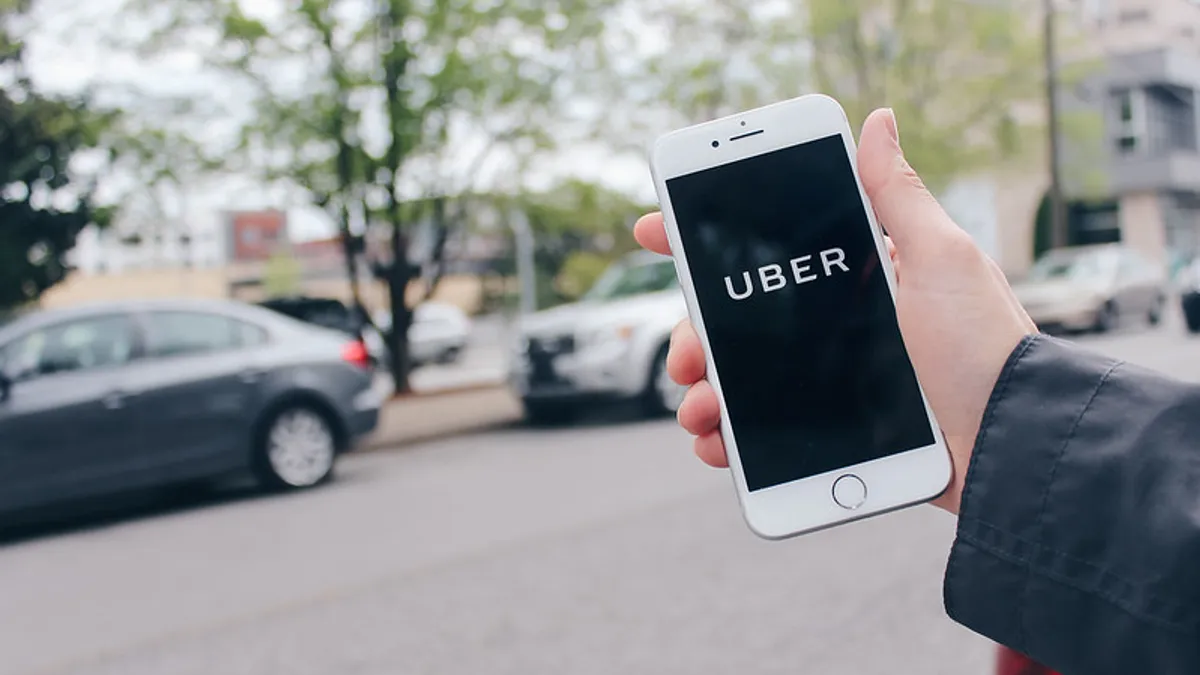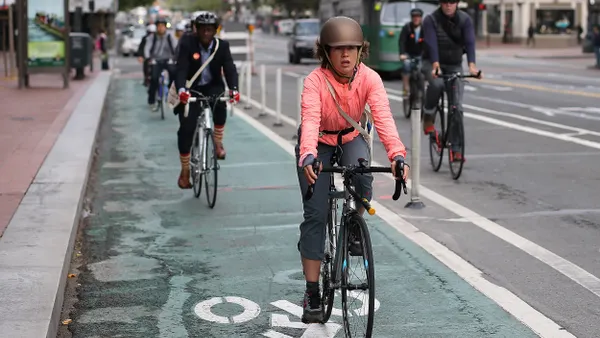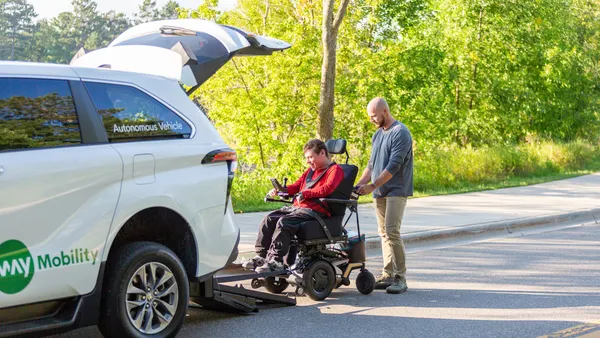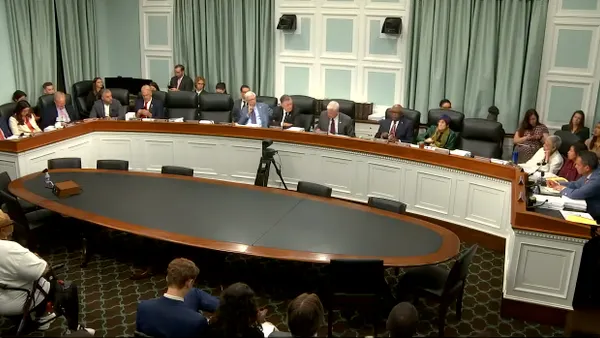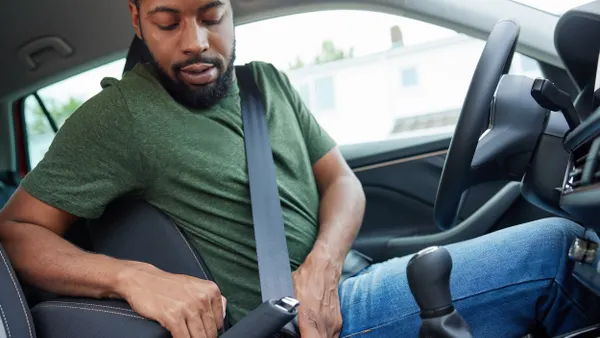Dive Brief:
- Uber is focusing on the delivery of food, freight and goods in the COVID-19 era as pandemic precautions and economic downturn have significantly diminished the rides business.
- The company's mobility segment bookings decreased 73% year over year in the second quarter. Uber's earnings reporting category previously called "Eats" will be called "Delivery" from now on — the segment posted 103% year-over-year growth in revenue in Q2. Uber announced the launch of its grocery delivery service in July and debuted a short-range delivery service for consumer-to-consumer small packages — called Uber Connect — in June. Uber also announced a B2C delivery program (Uber Direct) in May in a pilot in New York City.
- Uber Freight posted 27% year-over-year growth in bookings and revenue in the second quarter after launching partnerships with multiple transportation management system providers, including Oracle.
Dive Insight:
The semantic shift from "eats" to "delivery" in Uber's financial reporting reflects the efforts the company has made in recent months to adjust to consumer habits and restrictions during the pandemic.
Grocery delivery is one such adjustment‚ building on the explosion of e-grocery and delivery as consumers wish to spend less time in stores.
Uber Connect service is another — currently available in 25 cities worldwide. U.S. locations include Chicago, Miami, Phoenix and Washington, DC.
Consumer-to-consumer delivery puts the tech company in competition with parcel carriers and USPS, though not on price. A package (restricted to under 100 pounds) delivered four miles in Washington, DC, was quoted at $14.36 Friday morning — slightly more than the UberX ride quote of $12.55 offered for the same route.
With B2C delivery service Uber Direct, the company is also throwing its hat into the ring with more established on-demand delivery players like Roadie and other gig-economy backed delivery apps.
CEO Dara Khosrowshahi called Uber Direct "a huge hit with Latin America with three million trips globally since early June," on a Thursday earnings call.
Uber's initial U.S. pilot for the service was with an over-the-counter drug delivery service in New York City. It has announced no further partnerships since May and executives did not mention the service on the same call.



